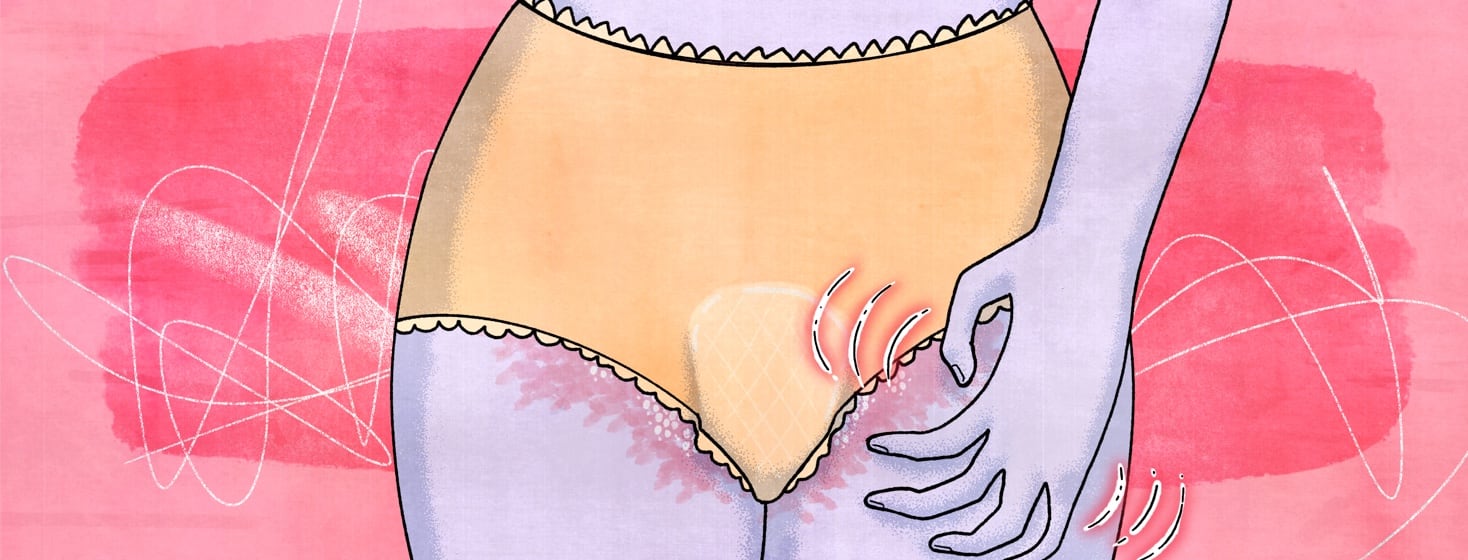That Time of the Month & Psoriasis Itching
I’m not sure there is any woman who looks forward to their monthly period, except maybe someone who finds it as a welcome relief to know she isn’t pregnant. If you have genital psoriasis like me, you may dread it even more.
According to the National Psoriasis Foundation’s “Genital Psoriasis Quick Guide,” published in March 2020, up to two-thirds of psoriasis patients experience genital psoriasis at some point in their lives. For me: Every. Single. Month.
Menstruation and Psoriasis
Rarely do I get caught off guard when it comes to my period. One to two days before it starts, I begin itching “down there.” Pretty soon, my inverse psoriasis flares, bringing me red, tight, shiny skin with severe itching. Sometimes, the skin splits, causing even more discomfort and pain.
The areas affected most by my genital psoriasis are: vulva, buttocks, inner thighs and pubis (the skin above the genitals).
Feminine Hygiene
My body does not like the products made to get a woman through this time of the month. I try to avoid anything that causes extra friction in those areas, but I have no choice when it comes to protection.
- Sanitary napkins: Just getting up and down from a chair can be painful. The pad rubs against my skin and my psoriasis is on fire.
- Tampons: Due to vaginal dryness – even during my period – I find tampons are difficult to insert. I do it when I have to, but I take them out as soon as I can.
- Menstrual cups: I tried them, and while they were a little better going in than tampons, I had a difficult time getting them in just the right spot and avoid a mess.
- Period panties: I admit I’m skeptical about trying these. There’s breathable cotton, and then there’s psoriasis breathable cotton. I haven’t been able to find any reviews that rate them as psoriasis (or skin irritation) friendly. Many say they “hug you tight,” so that’s good for leaks, but how is that for psoriasis in the creases of my skin where the edge of the panties fall? I probably should give them a try and see for myself.
For now, pads win out most of the time for me.
Bathing
Using fragrance-free soap and lukewarm water is best for me. And before you ask, yes, the water does burn, especially when my skin splits. I have been known to scream out a few four-letter words once in a while.
Immediately after showering, I use a towel to gently pat the areas affected. I don’t need more friction to make it angry again. I also apply moisturizer right away to help. For me, nothing works better than coconut oil, but petroleum jelly is a close second.
While many patients find an oatmeal bath or using unscented bath oil helps ease the pain of genital psoriasis, I have not had the same results. Every patient is different, so if your doctor gives the okay, give a try.
Other Things to Try
Here is a list of other things I found helpful with managing genital psoriasis:
- Good toilet paper: When you have your period and you’re wiping down there a lot, choose the good brands. That is one thing I won’t skimp on. My husband brought home super-thin ply toilet paper that scratched and irritated my genital psoriasis beyond imagination. Only name brands from now on.
- Cotton undies: I only wear cotton underwear. It is the most breathable and causes the least amount of irritation. Also, I have to find just the right size to avoid being too big or too tight, both of which can cause friction in an area that doesn’t need it.
- Wipe the sweat away: I take a shower as soon as I can after exercising. Keep the areas with genital psoriasis clean and dry makes a big difference.
- Wear dresses: In the summer, I try to wear dresses so the air can circulate better, keeping the areas dry and sweat-free.
Is your genital psoriasis worse during your period? What helps you?

Join the conversation